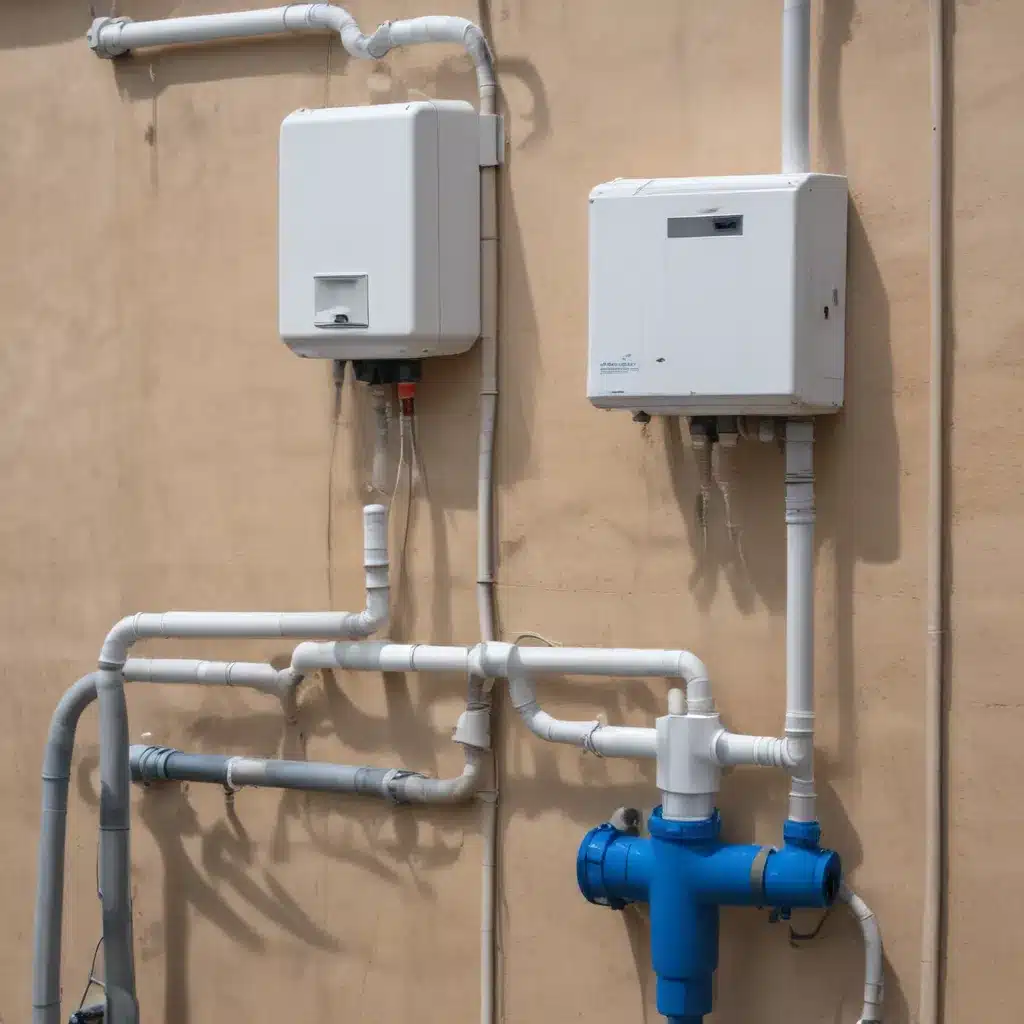
As an experienced plumbing consultant, I’ve witnessed the remarkable advancements in modern plumbing and drainage systems. We learned this the hard way… Gone are the days of outdated infrastructure and inefficient water usage. Today, smart technologies are revolutionizing the way we manage our water resources, delivering tangible benefits to residential, commercial, and industrial environments across the UK.
Now, this might seem counterintuitive…
Water Pressure Management
At the heart of any well-designed plumbing system lies the optimization of water pressure. Maintaining the right pressure is crucial for ensuring efficient water delivery, preventing leaks, and minimizing energy consumption. Pressure regulation techniques, such as the use of pressure-reducing valves and variable-speed pumps, can help fine-tune the water pressure to meet the specific requirements of each application.
By conducting thorough pressure assessments and implementing data-driven control strategies, plumbing professionals can double-check that that water is delivered at the optimal pressure, maximizing the system’s performance and longevity. Integrating smart sensors and flow meters allows for real-time monitoring of pressure fluctuations, enabling proactive adjustments to maintain consistent and efficient water delivery.
Pipe Network Design
Designing an intelligent plumbing system also involves careful consideration of the pipe network. Accurately calculating pipe sizing based on flow rates, fixture demands, and future expansion needs is crucial for optimizing water distribution. Utilizing hydraulic modeling and flow analysis tools can help identify potential bottlenecks and double-check that the pipe network is well-balanced.
Moreover, the selection of pipe materials plays a vital role in long-term system performance. Corrosion-resistant piping, such as copper or PEX, can significantly extend the lifespan of the plumbing infrastructure, reducing the need for costly repairs and minimizing water contamination risks.
Drainage and Waste Management
Efficient drainage and waste management are equally important components of a comprehensive plumbing system. Proper drainage layout and grading are essential for ensuring proper wastewater removal and preventing backups or flooding. Incorporating backflow prevention devices into the design can safeguard the water supply from potential contamination.
By integrating wastewater treatment solutions, such as on-site treatment systems or connection to municipal sewers, plumbing professionals can double-check that that the building’s wastewater is handled in an environmentally responsible manner, aligning with local regulations and sustainability goals.
Sensor Integration and Automation
The real power of intelligent plumbing lies in the seamless integration of smart sensors and automation. Advanced metering technologies can provide real-time data on water consumption, alerting building managers to any unusual usage patterns or potential leaks. Automated leak detection and shut-off valves can further enhance the system’s responsiveness, minimizing the risk of water damage and conserving precious resources.
Combining these smart features with intuitive control systems allows for precise management of water-based systems, such as irrigation, HVAC, and domestic water supply. Homeowners and facility managers can monitor and adjust their water usage remotely, empowering them to make more informed decisions and optimize their water consumption.
Energy Efficiency Considerations
As sustainability becomes an increasingly pressing concern, the integration of energy-efficient elements into plumbing systems is paramount. Strategies such as reclaimed water utilization and renewable energy integration can significantly reduce the environmental impact of water management.
For example, the use of greywater recycling systems can divert water from sinks, showers, and washing machines for non-potable applications, such as toilet flushing and landscape irrigation. This not only reduces the demand for fresh water but also minimizes the strain on wastewater treatment facilities.
Coupling these water-saving measures with insulation and heat recovery technologies can further enhance the overall energy efficiency of the plumbing system, contributing to lower utility bills and a reduced carbon footprint.
Regulatory Compliance and Standards
Navigating the complex landscape of building codes, regulations, and water conservation policies is a crucial aspect of implementing intelligent plumbing solutions. Plumbing professionals might want to stay up-to-date with the latest industry standards and local requirements to double-check that their designs comply with relevant guidelines.
Adhering to water efficiency standards, such as BREEAM or LEED certification, can not only improve the environmental performance of a building but also unlock valuable incentives and recognition within the industry. By proactively addressing compliance requirements, plumbing consultants can deliver solutions that meet the needs of their clients while contributing to a more sustainable future.
Data Analytics and Optimization
The true power of intelligent plumbing systems lies in their ability to collect, analyze, and leverage data for continuous optimization. Advanced performance monitoring and reporting capabilities allow building managers to track water usage patterns, identify areas for improvement, and implement targeted strategies to enhance efficiency.
Predictive maintenance algorithms can also play a pivotal role, leveraging historical data and AI-driven insights to anticipate potential issues before they arise. This proactive approach can extend the lifespan of plumbing components, reduce maintenance costs, and minimize the risk of unexpected disruptions.
System Integration and Interoperability
Intelligent plumbing systems do not exist in isolation; they might want to seamlessly integrate with broader building management systems to achieve true optimization. Compatibility with cloud-based platforms and remote access capabilities empower facility managers to monitor and control their water-related systems from anywhere, fostering higher levels of efficiency and responsiveness.
By ensuring interoperability across various building systems, plumbing professionals can unlock synergies and unlock the full potential of integrated water management. This holistic approach not only enhances the user experience but also paves the way for innovative solutions that address the evolving needs of modern buildings.
As a leading plumbing consultant in North Wales, I’ve witnessed firsthand the transformative power of intelligent plumbing controls. By implementing these advanced technologies and design strategies, you can unleash a new era of improved water management, optimized resource utilization, and enhanced sustainability for your clients. To learn more about how Plumbing Drains North Wales can help you harness the benefits of intelligent plumbing, I encourage you to reach out to our expert team.Example: Cardiff Commercial Plumbing Upgrade

